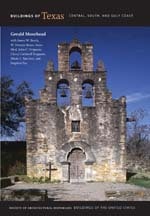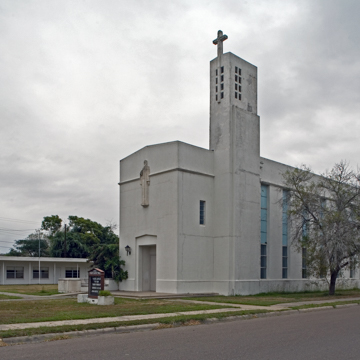The church is a tour de force of religious architecture in the city and in the Lower Rio Grande Valley. A traditionalist designer, Steinbomer of San Antonio crested the wave of post–World War II church construction in Texas, especially in small and midsized cities. Deeply religious, he strove for designs that reflected the beliefs of a particular denomination. In its austerity, the Raymondville church signals compliance with the precepts of the Presbyterian faith, as well as Steinbomer's gradual but definite shift to modern ism throughout the 1950s. While the church reveals his admiration for modernism's clean, simple lines, it still adheres to streamlined modernistic influences of the 1930s. Of note is the bas-relief of John Knox, the historic Presbyterian leader, which floats within the plain, white stucco facade. It is attributed to Charles Umlauf, noted Central Texas sculptor, who partnered with Steinbomer in a number of his church commissions.
You are here
First Presbyterian Church
If SAH Archipedia has been useful to you, please consider supporting it.
SAH Archipedia tells the story of the United States through its buildings, landscapes, and cities. This freely available resource empowers the public with authoritative knowledge that deepens their understanding and appreciation of the built environment. But the Society of Architectural Historians, which created SAH Archipedia with University of Virginia Press, needs your support to maintain the high-caliber research, writing, photography, cartography, editing, design, and programming that make SAH Archipedia a trusted online resource available to all who value the history of place, heritage tourism, and learning.





















